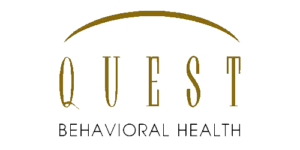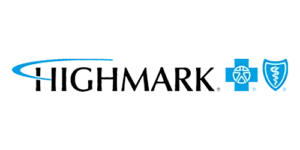Many people are interested in natural ways to support their mental health. Essential oils have become a popular topic, especially for those exploring options for anxiety, depression, or PTSD. These oils are commonly discussed as part of a broader approach to wellness.
At Arkview Behavioral Health, we provide evidence-based mental health and addiction treatment. Some clients ask about complementary therapies, such as natural remedies for anxiety, to use alongside their professional care. Our goal is to educate and guide individuals and families seeking a safe and informed recovery journey.
What are Essential Oils for Anxiety and Depression?
Essential oils are concentrated liquids made by extracting natural compounds from plants. These oils come from flowers, leaves, roots, or other plant parts. People have used essential oils for many purposes throughout history, including for relaxation and emotional support.
In the context of mental health, essential oils for anxiety and depression refer to certain plant extracts that may help with feelings of stress, sadness, or worry. Examples include lavender, bergamot, and chamomile. These oils are sometimes used in aromatherapy or added to baths and massage oils.
Essential oils are not a replacement for medical or psychological treatment. Research on their effects is ongoing, and results vary depending on the type of oil and how it is used. At Arkview BH, essential oils may be considered as part of a holistic, complementary approach, always alongside professional care.
How do Essential Oils Work for Mental Health
Essential oils interact with the brain primarily through the sense of smell. When a person inhales an essential oil, tiny scent molecules enter the nose and reach special smell receptors.
These signals travel directly to the limbic system, a part of the brain involved in emotions, memories, and the body’s response to stress. The limbic system processes these signals and can affect how a person feels.
Some essential oils are believed to affect neurotransmitters such as serotonin and GABA. These brain chemicals play a role in mood and anxiety. Changes in these neurotransmitters may help a person feel calmer or more balanced.
Studies from organizations like the National Institutes of Health (NIH) and the National Center for Complementary and Integrative Health (NCCIH) have found that a significant number of people using aromatherapy report reduced anxiety symptoms.
There are different ways essential oils interact with the body:
- Through inhalation, messages travel quickly to the brain’s emotional center, which can result in a rapid change in mood.
- When essential oils are diluted and used on the skin, some of their components may enter the bloodstream.
- The brain may then respond by releasing chemicals that influence mood or stress levels.
Best Essential Oils for Anxiety, Depression, and PTSD
Several essential oils have been studied for their potential to support mental health when used as part of a broader treatment plan. Some essential oils contain plant compounds that interact with the body and brain through scent or topical use. Here are some of the best-known essential oils for anxiety, depression, and PTSD.
Lavender oil is made from the flowers of the lavender plant. It contains compounds called linalool and linalyl acetate. Research shows that inhaling lavender oil can lower anxiety scores by up to 45% in clinical settings. Lavender oil is also commonly used to improve sleep and is often chosen for general anxiety and mild depression.
Bergamot oil comes from the rind of the bergamot orange. Its citrus scent is recognized for supporting a positive mood. Studies suggest that using bergamot in aromatherapy can reduce depression symptoms by about 30% in some cases. Bergamot oil is often used to boost energy and motivation, especially for people who experience low mood.
Chamomile oil is extracted from chamomile flowers and has a long history of use for relaxation. Current research supports its ability to reduce anxiety, stress, and worry. Chamomile oil is usually considered safe, but individuals with allergies to ragweed or related plants are advised to use caution.
Vetiver oil is made from the roots of the vetiver plant. Some clinical trials indicate that vetiver oil may help reduce PTSD symptoms related to trauma and hyperarousal. The scent is described as earthy and grounding, which some people find helpful during periods of distress.
Frankincense oil comes from the resin of the Boswellia tree. It is often used for its effects on emotional regulation and mild depression. Early research suggests that frankincense may help balance emotions, particularly when anxiety and depressive symptoms are present together.
Comparison Table:
| Essential Oil | Primary Benefit | Best For | Research Level
|
| Lavender | Anxiety & Sleep | General anxiety | High |
| Bergamot | Mood lifting | Depression | Moderate |
| Chamomile | Calming | Stress & worry | Moderate |
| Vetiver | Grounding | PTSD symptoms | Limited |
| Frankincense | Emotional balance | Mixed symptoms | Limited |
Safe Ways to Use Essential Oils for Mental Health
Using essential oils for anxiety and depression involves following safe and tested methods. Different approaches help ensure safety and effectiveness.
- Electric diffusers work by adding 3-5 drops of essential oil to water, which then disperses the scent into the air. Operating in a well-ventilated space and following the manufacturer’s instructions helps prevent overexposure.
- Steam inhalation uses 1-2 drops of oil in a bowl of hot water. Covering the head with a towel and breathing in the steam for 5-10 minutes allows the scent to reach the nose. Direct contact with the hot water is avoided to prevent burns.
- Passive diffusion places a few drops on a cotton ball or tissue, allowing the aroma to slowly release near the user.
- Dilute essential oils to a concentration of 1-2%. This means 1-2 drops of essential oil mixed with each teaspoon of carrier oil, such as coconut, jojoba, or almond oil.
- Testing a small amount on a patch of skin before full application can help detect possible irritation or allergic reactions.
- Sensitive areas like the eyes, mouth, and broken skin are not used for application.
- Inhaling directly from the bottle provides a quick way to smell the oil.
- Personal inhalers offer a portable method for discreet use outside the home.
- Placing a drop on a tissue and inhaling as needed allows for a controlled experience, which can be complemented by self-calming exercises for anxiety.
Safety bullet points:
- Ingesting essential oils is not safe, as they can be toxic if swallowed.
- Diluting essential oils before skin use helps prevent irritation.
- Some essential oils may interact with prescription medications, so consultation with a healthcare provider is suggested before use.
- People who are pregnant or breastfeeding are advised to consult a healthcare provider regarding essential oil use.

What Research Says About Essential Oils for Mental Health
Recent research from the National Institutes of Health (NIH) and the National Center for Complementary and Integrative Health (NCCIH) between 2021 and 2024 reports that certain essential oils have shown potential in supporting mental health. Several clinical trials indicate that lavender oil can reduce anxiety by 30-45% when compared to placebo groups. Studies on bergamot and chamomile show moderate evidence that these oils can help improve mood and reduce stress.
Essential oils are generally found to be less effective than prescribed medications for cases of severe depression. However, some research suggests that when essential oils are used together with standard therapies, they may contribute to overall well-being. Many studies on essential oils are limited in size or last only a short time, and more research is being conducted to determine long-term results.
Key findings include that lavender oil leads to a significant reduction in anxiety symptoms, both in controlled clinical settings and at home. The calming effects from inhaling essential oils, such as lavender, tend to last for 30 to 60 minutes after use. Some evidence suggests that combining essential oils with therapy or medication can improve outcomes for certain individuals.
Essential Oils as Part of Complete Mental Health Treatment
Essential oils for anxiety and depression are considered a complementary therapy, not a replacement for professional mental health care. At Arkview BH, holistic approaches are integrated with evidence-based treatments as part of the recovery process.
Combining essential oils with therapy or medication is common for individuals seeking the most support. Essential oils alone do not address all symptoms, especially if those symptoms are severe, persistent, or affect daily life. Professional help is recommended if anxiety or depression continues or disrupts normal activities.
Aromatherapy and other holistic methods are included in Arkview BH’s treatment plans, but always alongside clinical care and support. Warning signs that indicate the need for professional intervention include symptoms lasting more than two weeks, increasing distress or hopelessness, and difficulties with daily responsibilities or relationships.

Frequently Asked Questions about Essential Oils for Anxiety and Depression
Essential oils do not replace prescription medications. They are considered a complementary option, and any changes to prescribed medications require consultation with a healthcare provider.
Calming effects from aromatherapy are often noticed within 5 to 15 minutes of use. Longer-term or more consistent use over several weeks may result in more noticeable changes.
Topical and aromatherapy use is generally considered safe, but certain essential oils may interact with medications. It is important to share information about all therapies with prescribing healthcare professionals.
Lavender oil, when inhaled directly, is widely reported to have a rapid calming effect during acute anxiety. Individual responses may differ, and severe panic may require additional professional support.
Combining two or three oils such as lavender, bergamot, and chamomile is considered safe for most people. It is common practice to start with individual oils, observe the effects, and then consider blending.
Start Your Journey to Mental Wellness with Professional Support
Detoxifying essential oils may be used as part of a mental health routine, but clinical care remains the primary treatment for recovery from anxiety, depression, or trauma-related concerns. At Arkview Behavioral Health, treatment involves evidence-based therapies and may include holistic options such as aromatherapy, depending on individual needs.
A professional support system is available for those interested in combining essential oils with other methods. The approach at Arkview Behavioral Health addresses mental health by considering both scientific therapies and complementary options. Start your journey to recovery now to connect with a team that can help create a treatment plan based on your unique situation.






















